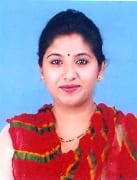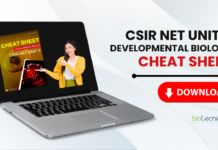TIFR JGEEBILS Exam – How to qualify in 180 Days
Education from a reputed organization plays an essential role, as it not only helps in the all-round development of an individual but also in determining the avenues for higher studies in the future as well as reputed job. Tata Institute of Fundamental Research (TIFR), one of the supreme institutes of fundamental sciences and research in India is a well-known institute that comes in mind of every individual who wants to choose science as a career. Biotecnika, through this article, provides an opportunity to all research aspiring biological science students to know more about TIFR, TIFR GS exam / TIFR JGEEBILS Exam and most importantly how one can prepare for it.
About TIFR
TIFR was established in the year 1945 under the vision of Dr. Homi Bhabha with support from Sir Dorabji Tata Trust. It is a National Centre of the Government of India with the main campus situated in Mumbai and centers at Hyderabad, Bangalore, and Pune. Institute is not only popular for its extraordinary educational quality, but also for research environment along with best infrastructure and facilities. Basic research at TIFR is carried out in mathematics, physics, biology, chemistry, computer and systems sciences (including communications and applied probability) and science education. Department of Biological Sciences of TIFR is an India’s leading biology research department provides excellent opportunities for research aspiring biology students to work on various streams of biological and multidisciplinary sciences such as cell biology, molecular biology, genomics, and systems biology, biophysics and neuroscience. The students get a chance to perform research under the supervision of proficient supervisor who aims to capture them in the process of problem-solving, intellectual inquiry and creative thinking.
TIFR – Courses & Fellowships Offered
The department imparts three-degree course which includes Ph.D. Degree, Integrated Ph.D., and M.Sc degree. A Ph.D. degree is a five-year degree programme for students who have completed their Masters’ in Basic Science (physics/ chemistry/ any branch of biology) or have completed a professional degree such as masters (M. Pharma or M. Tech) or a four-year degree program (M.B.B.S, BDS). Integrated Ph.D. degree is a six-year whereas M.Sc it’s a three-year degree programme. Both the programmes are for students who have completed their bachelor’s in basic science (physics/ chemistry/ any branch of biology) or bachelor’s degree including B. Tech., B.E., B.V.Sc., B. Pharma (four-year course). There is also a provision of fellowship for biological sciences students of various degree courses, like, Ph.D. students are provided with the fellowships of Rs. 25,000/- which is enhanced to Rs. 28,000/- after registration. Students of Integrated M.Sc-Ph.D. programme also receive a monthly fellowship of Rs. 16,000/- for the first year, which may be enhanced to Rs. 25,000/- based on their performance at the end of the first year and after Ph.D. registration. M.Sc. research students also receive a monthly scholarship of Rs.16000/-.
TIFR JGEEBILS Exam
To get admission in these programmes, one has to qualify the exam conducted by the institute in December each year, followed by interviews at various test centers in India. TIFR GS is an entrance exam organized by Tata Institute of Fundamental Research in order to provide admission to candidates in postgraduate science courses offered by it. TIFR GS for Biology is also known as JGEEBILS (Joint Graduate Entrance Examination for Biology and Interdisciplinary Life Sciences). It is the primary route by which TIFR Centres (DBS-Mumbai/NCBS-Bangalore/TIFR-Hyderabad) receive applications for the graduate programme in Biology. The shared test is conducted to reduce the difficulties that students faced with multiple entrance tests and also to reduce the duplication of effort by many institutions in conducting such examinations. Shortlisting of the candidates for the interview is based on written test marks, CV and scientific write-up.
- Exam Dates
A written exam is conducted annually on Sunday in the month of December every year at 30 centers across India. The notification for examination dates for TIFR GS exam is published in employment news, university news journal and current science journal. You can refer TIFR webpage for the same that is http://univ.tifr.res.in.
- Application Procedure
The application procedure for TIFR GS exam is online. Candidate can fill the application form following the appropriate link at TIFR website. Biotecnika releases TIFR’s Official Notification first hand. The official notification for this year should be out in the month of November. Keep checking this page for latest updates on TIFR Exam.
- Payment Fees & Mode
Fees for TIFR GS / TIFR JGEEBILS exam is Rs. 900/- for male candidates and Rs. 300 /- for female candidates. The payment of the fees can be done either by demand draft or by online payment through internet banking or Credit/debit card.
- Exam Pattern for TIFR JGEEBILS Exam
The exam is of two-hour duration and consists of multiple choice questions only. The paper is divided into the following four sections.
| Sections | Disciplines | No. of Questions |
| Section A | General | 15 questions |
| Section B | Physics | 15 questions |
| Section C | Chemistry | 15 questions |
| Section D | Biology | 15 questions |
Out of 15 questions, 10 questions of 1 mark each and rest five questions are of 2 marks each. Negative marking is also there (0.5 marks).
Competition is hard, as the seats are limited and a number of candidates applying for admission are vast. Therefore, to secure a seat, one needs to be well prepared. So, what as well as how to prepare for the exam and type of questions asked are some of the questions that might be popping in your mind. This article provides an insight into some useful steps that will help you to prepare and crack the “ TIFR JGEEBILS Exam in 180 days”.
Go through the syllabus of TIFR JGEEBILS Exam
This is the very first step in preparation for exams as syllabus will give you an idea of what topics you need to study for the exam. There is no particular syllabus for TIFR GS Biology exam.
- The test is extremely basic and consists of multiple choice questions covering basics in physics, chemistry, maths, and biology.
- The type of questions asked in physics and chemistry section is generally numerically based.
- From Physics, Newtonian laws, graphical analysis, easy problems, vectors, fluid mechanics, electricity, optics, etc are asked. The intention is to test your basics.
- Chemistry section is important since a biologist has a lot to deal with chemistry basics. It can comprise of atomic structure, hybridization, enzyme kinetics, organic and inorganic chemistry. Solving equations and mathematical calculations are a must.
- From the General Section, basic calculus, geometry, statistics, trigonometry, probability, and algebra is asked from mathematics. It may also have questions from general science, awareness and working principles of appliances, etc. It can also be from the environment around you or about a basic everyday solution.
- Biology section comprises of easy to logical questions from topics including genetics such as based on linkage determination, pedigree analysis as well as population genetics, data sufficiency, and experimental design. Hypothesis or experimental condition based analytical questions are also asked. You can also read about the cell and its structure, animal physiology, and metabolism.
- Interview conducted after written test is also based on the area of candidate interest and comfort. You may be asked to prepare an SOP and submit it before the interview. It is used to judge your research interest. As there is no precise guide book or syllabus, no special knowledge is required, one just has to revise their basics. You can refer your 10+2 level books of basic sciences. The comprehensive conceptual study of physics, chemistry, mathematics and biology NCERT books shall help. The main aim of the interview is to see if you are able to logically derive conclusions and if you are strong in your subject area. The panel may also discuss your past research experience or project and you must be able to defend it.
Studying smart
The second step is to study smart. The way you prepare or study for an exam will define how you will proceed in it. Since you have to cover basics, you need to devote time to each and every subject. But that doesn’t mean you study everything, what you need to make sure is that you make the most of it and this can be accomplished by studying smart.
Here’s how you can do that, set your goal which is pragmatic and achievable, and be extremely focused on your goals. For example, a number of chapters or topics you want to study, you can set goals for every day. Most of the students follow the rote memorization approach for preparing for exams, but one should understand that this will not help as simple memorization of topics may result in unanticipated errors. You have to adopt the approach which can help to better understand and remember concepts so that at the time of exam you can recall and apply them easily. It can be anything, you can learn by making flow charts or diagrams, any holistic approach can be used, ranging from mnemonics to memory palace technique. So, analyze which approach suits you the best and go for it.
Time Management
Time management is very important if you want to crack any competitive exam. Amount of time that you need to devote to your studies will go to stay the same for all whether it is the GATE Exam, ICMR Exam or TIFR JGEEBILS Exam. Usually, students extend hours and hours to study hard for exams. It is not wrong but it’s not an accurate approach. Anyone can’t study for longer periods of time with the same concentration. It is essential that you set your priorities, like, important topics should be covered first, what time in a day suits you best for doing calculations, what time you like studying theoretical subject. For example, for some morning time is best for doing maths, and evening for studying theoretical subject, this can vary from person to person according to his/her interests. This helps you cover topics of different subjects in a day. Therefore, analyze yourself and work accordingly.
Evaluate yourself
Merely studying will not help, you need to evaluate your readiness for the final exam, which can only be achieved through mock tests. Mock tests create an exam-like situation with similar patterns of questions and a time limit to answer those correctly. Mock tests give you a better understanding of your preparation and also help you locate your weaknesses. It gives you enough time to lay out a plan of approach for your final exam. Additionally, mock tests based on TIFR JGEEBILS exam pattern are the best way to identify how much you have actually retained, identify the sections you are doubtful about and also revise the concepts you have learned. Several online mock tests are available that you can give sitting at home. Also, you can refer to previous years’ questions that can serve as the mock test question papers and you can time yourself.
Practice
Practice as much as you can, as no amount of practice is enough. It will help you get used to the question format asked in exams. Also, it is important that you should spend the right amount of time on each section of the paper. Solving questions for TIFR JGEEBILS exam require the presence of mind and few tricks for eliminating suitable options as the exam is based on multiple choice question pattern. Previous year question paper is given on the TIFR webpage for your reference. The more you practice, the better you will get at solving problems as well as time management and there are lesser chances of a mistake at the time of the actual exam. Thus, solving question papers for practice will surely raise your confidence. Also, you can make tables for the formulas or diagrams on sheets and keep them for last minute revision.
Dedication, Discipline, and Devotion
These three D’s can do wonders in one’s life. Study because you need to do it as a necessity will not help you out. To achieve your goal, dedication is of greatest importance. Hard work is the primary ingredient for the dedication which is a voluntary willingness and desire to reach towards your goal. One cannot achieve his/her goals without hard work. Hard work requires self-discipline and devotion that is the ability to focus on one’s goals and objectives. Discipline keeps us remain calm as well as collected and help us to face every situation of life whereas devotion forms the basis of accomplishment of a particular task.
Stay Away from Distractions
Technologies are good but it can be bad too if you are lost in it. Nowadays, most of the students are busily involved in their mobile phones, tablets or laptops in playing internet games or visiting social sites which are just wastage of time. Keep yourself away from these distractions. Two minutes converted into two hours when you indulge yourself into them. To achieve your goal, these distractions are very much needed to be avoided. Also, make sure that the environment you study should be comfortable for example, the chair, light, space you require spreading your textbooks, etc. Some can concentrate better while studying in complete silence but for some background music helps, similarly some require everything organized whereas some like cluttered environment. So, find out what works for you.
Positive thinking
It is rightly said “Don’t be pushed around by the fears in your mind. Instead of worrying about what you cannot control, shift your energy to what you can create” so believe in yourself. Your attitude towards your goal makes a large difference. If you think positive, the same will happen to you because when you think positive you attract positive energy. Keep on telling yourself that yes, you can do better. If you believe in what you are doing, you will surely succeed in it.
Stay Healthy
Many students take a lot of stress of exams, which not only have a bad effect on their health but also they are not able to perform well at the time of examination. Success in your exam depends on your both physical and mental health. You can prepare better for the exam only when you are healthy because a state of good health allows you to focus and relax. You absorb and recall information better in good health state. Getting adequate sleep is very important during exam time as it facilitates faster thinking and better remembering of information. Proper nutrition and exercise are the two important things that one should follow to mitigate the detrimental effects of stress.
These tips are quite easy to employ and you can start using these right now to get the results you are aspiring for. Always remember that there are no shortcuts or secrets to success, it is the result of all your preparation, hard work and learning from your mistakes or failures. I end this article with this famous quote which will surely keep you motivated and made you believe in yourself.
“Keep your dreams alive. Understand to achieve anything requires faith and belief in yourself, vision, hard work, determination, and dedication. Remember all things are possible for those who believe. – Gail Devers”.
 Ph.D. degree holder in Biotechnology. Apart from being an experienced teacher at Biotecnika, she has handled several research projects and supervised postgraduate as well as undergraduate students in dissertations and summer training programs. She is a hard-working, self-motivated and enthusiastic person, loved by all students. More such valuable information will be shared by her in the future as well.
Ph.D. degree holder in Biotechnology. Apart from being an experienced teacher at Biotecnika, she has handled several research projects and supervised postgraduate as well as undergraduate students in dissertations and summer training programs. She is a hard-working, self-motivated and enthusiastic person, loved by all students. More such valuable information will be shared by her in the future as well.Keywords: TIFR Exam, TIFR JGEEBILS Exam, JGEEBILS Exam, TIFR GS Exam, TIFR PhD Exam, TIFR, TIFR Fellowships.



































Thank you for such a wonderful rout map for the preparation for TIFR JGEEBILS. I will follow this steps and bag my goal, can I get any study materials from Biotecnika for the preparation.